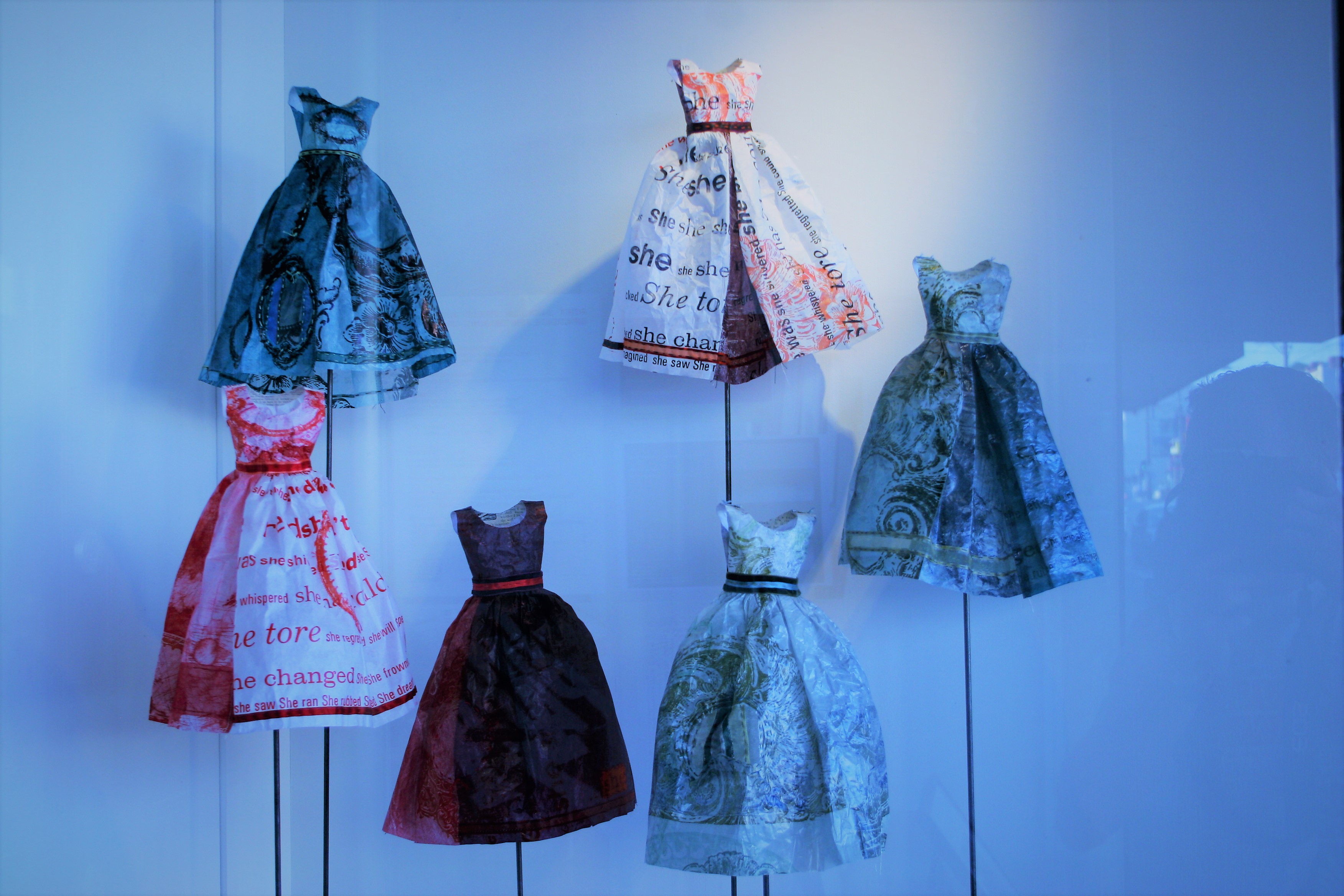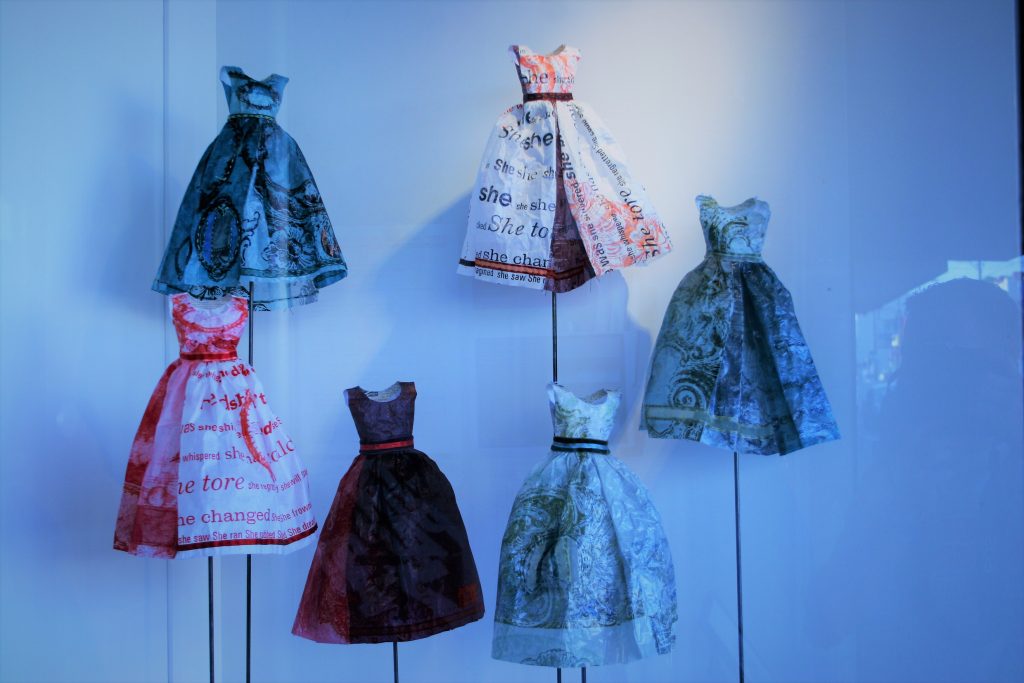I sometimes think that the only sane way to live is to pretend no one else exists. Only in that way can anything resembling serenity be nurtured. That that is the only place where true strength can be cultivated.
I was going to use the word ‘forged’ there, but that seemed too macho. Cultivate is a more feminine word, surely. As is nurture. Plants and food and crops and children are cultivated, nurtured, cared for. By women, we suppose, those collective mothers. Weapons are forged and tempered. As are tools. For rending the earth. For digging in the soil. For ploughing and burying. And later for cutting and reaping. Very male terms and actions.
If you believe in that sort of thing.
The gendering of language is not an imagined thing, and of course can be viewed through a political, sexist and discriminatory lens, but I wonder if we really need to get beyond all that. I’m not talking about languages having masculine and feminine forms of words, I’m talking about the weaponising of language. A man who is tough and uncompromising doesn’t take any shit. A woman who behaves in the same way is a bitch. He sleeps around and he’s a stud. She does the same and she’s a slut. His wielding of soft power makes him decent, genuine, confident. Hers makes her weak, indecisive, untrustworthy.
I find the observation implied by those comparisons banal to the extent of being a cliché, but they do point up the oppositional nature of gender, and how many of us continue to be conditioned by gender norms and stereotypes. And if, now that the whole concept of gender is being so combatively and painfully reexamined, a person doesn’t identify along heteronormative binary lines, what does language mean to them? Does the weaponising of male and female terms and frames happen on a battlefield that is irrelevant to them? Do they roll their eyes and scoff at men and women being utterly left behind by the zeitgeist? Do they archly sip a turmeric mocha and jadedly draw back from the sturm und drang of traditional gender warfare while secretly wanting to scream that it’s not about just men and women anymore?
It’s striking, and doubtless exasperating to feminists of various waves and stripes, to think that women have been fighting their battles for as long as they have under the understanding that society’s battleground involved only two combatants – them and men, when that notion has clearly and very rapidly been demoted, if not deemed outright redundant, by the concept and reality of intersectionality which has been given great ballast by the large-hearted, notionally righteous, but often misguided and excessively sensitive woke movement. Referring to it as a movement is probably a misnomer, suggesting as it does a type of organised dynamic, as opposed to a widespread and highly contagious identity assertiveness. Regardless of what it is or isn’t, the message seems to be, nobody has a monopoly on suffering, on disadvantage, on collective injustice. In other words, “get in line!”
And while I’m here, I’m just going to throw out that large sections of men – among their number (shock! horror!) straight white men – also have justifiable claims of being shut out, left behind, ignored, disenfranchised etc. Basically, anyone can get left behind. The idea of a monolithic Straight White Man running the show verges on nonsensical. On the other hand, the idea of some straight white men having a disproportionate amount of influence, wealth and power is evident every single time you use or consume any iteration of Facebook or Amazon or Apple or Fox or Sky News.
Those are not non-entities. They epitomise a type of power, and a scope of influence, that verges on incomprehensible. But power and influence are key concepts here. We’re all dealing in degrees of each. How much power do you have? And who do you influence with what you’ve got? And to what end? When your identity is siloed or ghettoised or ringfenced, it is a dilution of your power and influence. It is a relegation, a sectioning away, a placing in a box. It is a demarcation that forbids participation in the main game where the prize that is being competed for is to be taken seriously, to be given credibility without qualification, to have acknowledged by merely being on the pitch, that you are a stakeholder.
And that’s what it all comes down to, isn’t it? Being invited to the table. Having a say. Being a part of it. And conflict comes when the gates remain closed. And if a group is waving its banner and making a lot of noise, it’s all the easier to identify and exclude, almost like a version of identity whack-a-mole.
These separating, siloing, dividing identity tags aren’t helping us, they’re a distraction from the issues that are impacting us all – wealth inequality, deregulation, climate change, healthcare, housing and education, food and hygiene deficits, mass incarceration, addiction epidemics, mass shootings, male suicide, violence against women, corporate impunity, and political radicalisation and populism. There’s nothing exclusive about that list.
So where does my opening line fit into all of this? Well, if we can disentangle ourselves from the lives of others, and not become embroiled in the clamorous cacophony of frenetic self-assertion, competing maniacally like one of the characters in 1963’s wacky, zany, crazy chase comedy ‘It’s a Mad, Mad, Mad, Mad World’ (one would expect an exclamation mark there, but strangely not), we might be able to see things a touch more clearly and bring our attention to what really matters. Which is an attempt at some form of harmonious cohabitation with our fellow human animals, regardless of gender, sexual orientation, disability, religion, skin colour, nationality or whatever other identifying characteristic might be used to separate us.
So, ironically, by anonymising everyone else, it becomes possible to care less about them in a good way, to care more about the ‘really matters’ part. I know, it’s starting to sound vaguely utopian and fantastical, and therefore unrealistic, but that’s where shutting out the white noise of other people can become bizarrely utilitarian as we embrace a drone-like, tunnel-vision functionality. The first thing struck off the list is interaction or the sharing of the burden of others. I normally advocate the other way, for a type of ethically-driven empathy and social conscience based on acknowledging the suffering of others, but I’m starting to think that the less I know about the interiority of others, the better! And why? Because caring about others is a recipe for breakdown.
I think I should start to cultivate in myself a pathology of dispassion and indifference as a form of sanity-insulation. I will prioritise my own wellbeing alone and expend no emotional or psychological energy on others. And I understand that the same thoughtful disregard will be extended to me. It will be an embrace of a grand dehumanising project that will benefit all humankind. A Communisation of positive self-care that will see all of us working on our cores, drinking wheatgrass smoothies, and composing Insta-Poetry in pastel pajamas and eco-friendly slippers, all as part of the collective individualisation system, honing ourselves into weapons of wellness, supremely carefree and independent, not wanting or needing anybody else. Like Switzerland, we will be the perfect neutrals, inoffensive and innocuous, well-behaved and non-participating, but doing a nice line in luxury goods and high-end lifestyles.
And yet, like Switzerland, that simply doesn’t sound like much fun.
The clash and clang of human interaction is where we meet ourselves. It’s where we find out what we’re made of. It’s where we realise what we care about. It’s where we discover who we care about, and that includes ourselves. Oppositional forces require us to draw battle lines, to think about our martial side, to review our weaponry, and to wonder if we want to fight at all. We may even find ourselves liking the enemy. God forbid, we may even agree with them!
The basic principle is that we need oppositional forces, elements and influences in our lives to keep us balanced. I want both the feminine and the masculine, and I am happy to be educated elsewhere if I have to restructure my understanding of Other. I am happy to shatter the reductive application of endless dichotomies of classification. I am happy to embrace a bit of nurturing and caring and nourishing and minding, while also forging and ripping and digging and razing. I won’t be afraid to prioritise self-care and occasional emotional and psychological isolation, but will not cut myself off from others. I can self-erase when required and let someone else occupy the space.
I don’t think my position has changed – it would be easier, more straightforward, and undeniably serene if no one else existed. One could be the autocrat of a one-citizen domain, ruling without resistance, seamless, friction-free, like silk.
But they do exist, don’t they. Everyone else. And I’m part of everyone else to each of them. So the mind game of isolation can be put in place to give us what it will, but the battleground of others is always only a head turn away. Breathe into it, accept it, and trust that strength and serenity will still be available in, or out, of their presence.

Do you want to close the door on the world? Or plunge into the hurdy-gurdy? Are you one for all, or one for none?



